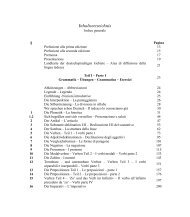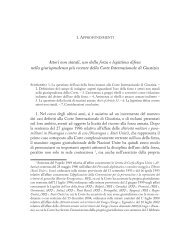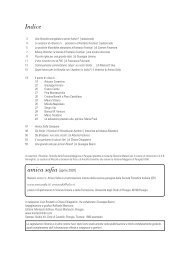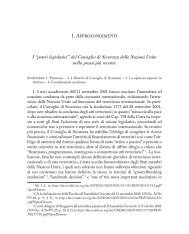Objective Territorial Principle or Effects Doctrine? Jurisdiction and ...
Objective Territorial Principle or Effects Doctrine? Jurisdiction and ...
Objective Territorial Principle or Effects Doctrine? Jurisdiction and ...
Create successful ePaper yourself
Turn your PDF publications into a flip-book with our unique Google optimized e-Paper software.
In.Law | 6 (2006) | 299<br />
of Yahoo! Inc. as an act of making inf<strong>or</strong>mation available on computer screens in<br />
French territ<strong>or</strong>y. On the other h<strong>and</strong>, it is also possible to characterize the same<br />
situation as an effect of the uploading <strong>and</strong> maintenance of a website abroad that<br />
is accessible to internet users in French territ<strong>or</strong>y. Nothing in the Yahoo! Auction<br />
cases shows convincingly that the f<strong>or</strong>mer is a m<strong>or</strong>e accurate characterization of<br />
the situation than the latter. This explains why some commentat<strong>or</strong>s prefer to see<br />
the reasoning in these cases as a disguised effects doctrine.<br />
This gray zone between the objective territ<strong>or</strong>ial principle <strong>and</strong> the effects doctrine<br />
itself is not a new the<strong>or</strong>etical challenge in the internet environment. There<br />
is a margin to choose between the two characterizations, <strong>and</strong> hence between the<br />
two bases of jurisdiction, even in cases in real space. 70 What is arguably new in<br />
the internet cases is that whichever characterization a municipal court chooses<br />
to rely on, the extent of jurisdiction justified will be the same. In anti-trust cases<br />
discussed previously, the two justifications, the objective territ<strong>or</strong>ial principle <strong>and</strong><br />
the effects doctrine, were thought to place very different limits on extraterrit<strong>or</strong>ial<br />
jurisdiction in certain cases. This is no longer true in cases involving the internet.<br />
The extent of extraterrit<strong>or</strong>ial jurisdiction justified by the objective territ<strong>or</strong>ial principle<br />
seems to be as limitless as the one justified by the effects doctrine. 71<br />
Possible remedies to re-establish limits on jurisdiction in internet cases have<br />
been proposed by commentat<strong>or</strong>s. One of the remedies proposed can be described<br />
as an eff<strong>or</strong>t to re-establish the distinction between the objective territ<strong>or</strong>ial principle<br />
<strong>and</strong> the effects doctrine. The cause f<strong>or</strong> the loss of the limiting power of the<br />
f<strong>or</strong>mer resides in the difficulty of a meaningful distinction between an act <strong>and</strong> its<br />
effect in the internet context: the act of letting a message <strong>or</strong> inf<strong>or</strong>mation be seen<br />
abroad; the effect that it can be viewed abroad. Thus, a number of commentat<strong>or</strong>s<br />
look f<strong>or</strong> a criterion that can re-establish this distinction. The most frequent<br />
suggestion appears to be a distinction based on the intention of those who create<br />
<strong>or</strong> maintain a website: an act is an intended conduct, whereas the effects of the<br />
act can be unintended. In the Yahoo! Auction cases, however, the consideration of<br />
intention did not lead to the limitation of jurisdiction. In the Yahoo! Auction case<br />
(1a), the unintentional character of the act in question was explicitly recognized<br />
70 F<strong>or</strong> example, some auth<strong>or</strong>s see the characterization of the implementation of a cartel agreement<br />
in the Wood Pulp case, supra note 23, as an example of the effects doctrine (E.g., Anthony<br />
Aust, H<strong>and</strong>book of International Law (2005), p. 47).<br />
71 See Shōtaro Hamamoto, ‘Yafū! Ōkushon Jiken [Yahoo! Auction Cases]’, in Hanrei Kokusaihō,<br />
Cases of International Law, pp. 94, 96 (Yoshirō Matsui ed., 2nd ed. 2006, in Japanese).

















